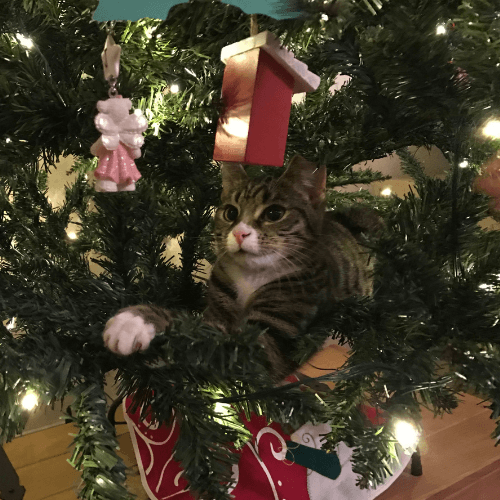We’re sure you’re all busy making plans for a memorable Christmas holiday. We’d like to provide you with information that will make it easier to include pet safety in those preparations and avoid common holiday hazards.
The following are some of the top hazards pets encounter during the holiday season.
Christmas trees
Pets can incur injuries from tipping over and/or trying to climb Christmas trees. Take care to anchor your tree to keep naughty and clumsy pets safe.
Ornaments
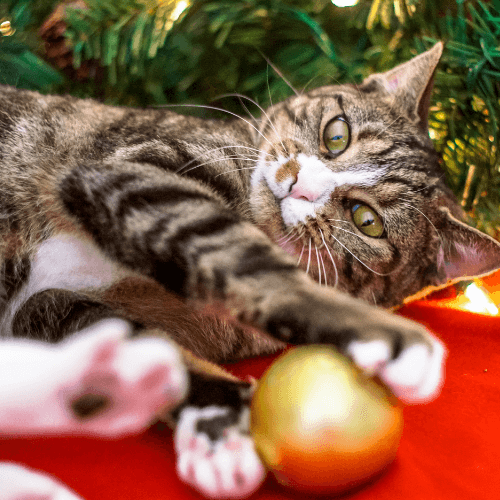
Fallen ornaments that break can have sharp edges which, when stepped on, can puncture and/or lacerate pets’ feet. When picked up, their mouths and possibly their gastrointestinal tracts can suffer the consequences. Take this into consideration when choosing ornaments for the tree.
Tinsel / Ribbon
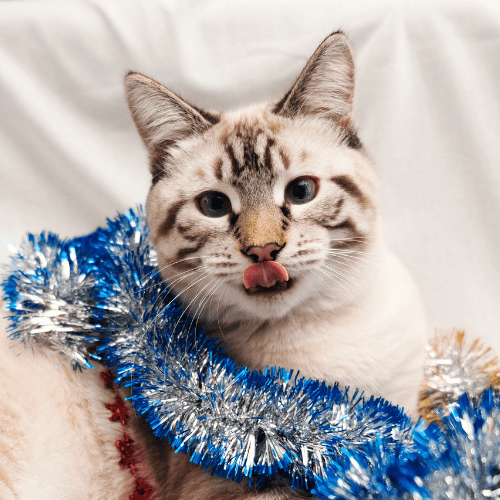
Tinsel from the tree and ribbon from opened gifts can wreak havoc on a pet’s body when swallowed. These can get stuck under the tongue or in the stomach and start to cut through the intestines, resulting in a life-threatening emergency. Ideally, households with pets should forego using tinsel altogether, and ribbon from opened gifts should be promptly discarded.
Wires

Plugged-in wires such as those used for lights, when chewed, can result in burns in the mouth and/or fluid accumulations in the lungs (as a result of electric currents). Keep wires out of the reach of pets when possible or unplugged when the room being lit is unoccupied/unsupervised. Keep in mind that chew deterrent sprays are not always effective. When effective, these products should be reapplied regularly, sometimes even daily.
Poinsettias
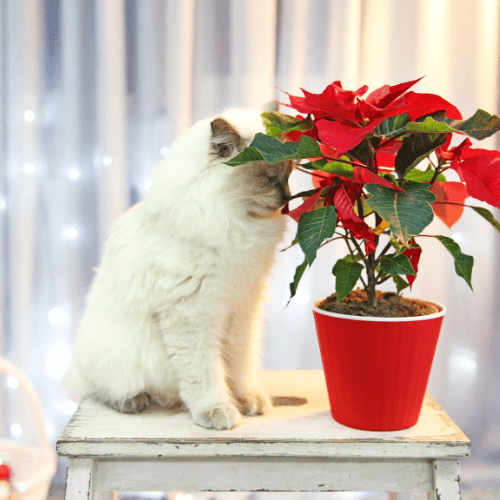
Contrary to popular belief, Poinsettias are only mildly toxic, resulting primarily in gastrointestinal upset and irritation of the mouth when ingested. Contact with the skin can result in skin irritation as well.
Holly
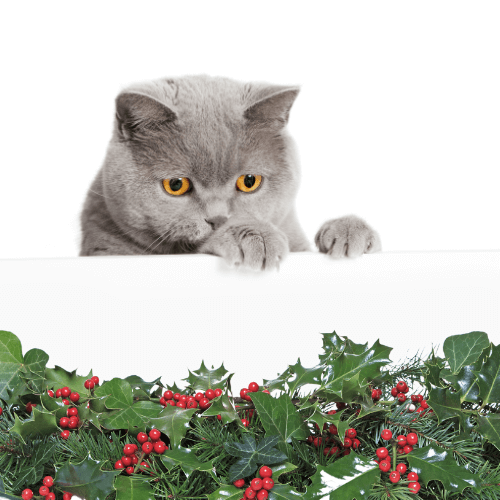
Holly, when ingested, can cause severe gastrointestinal upset. The pointy leaves can result in mechanical trauma both in the mouth and lower down in the gastrointestinal tract, compounding the inflammation caused by its toxic principles.
Mistletoe
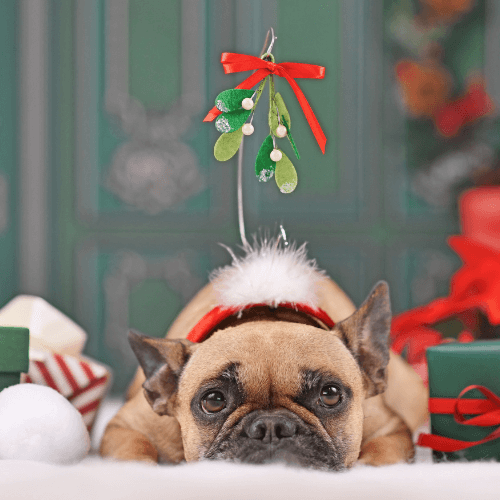
European mistletoe is more toxic than the American variety. Small ingestions can result in mild GI upset while larger ingestions are toxic not only to the GI tract but also to the heart (i.e. arrhythmias) and the nervous system (i.e. seizures).
Lilies
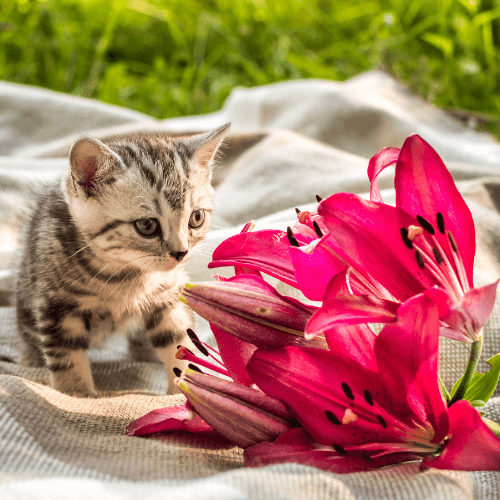
Different types of lilies vary in their levels of toxicity. Adverse effects resulting from their ingestion can range from minor oral irritation (i.e. contact with so-called benign species) to outright failure of the kidneys. The flowers, leaves, pollen, and even water from a vase containing toxic species, can be lethal. Households containing one or more cats should avoid these flowers altogether.
Other Holiday Treats
Please see our Halloween article for information regarding additional concerns, including chocolate, xylitol, raisins / grapes, and candles.
If you find that your pet has become entangled with one of these or any other dangers during the holiday season, please remember that early intervention is always best. We hope you have a safe and happy holiday. Happy Hanukkah, Merry Christmas and Happy Kwanzaa!
Any time you’re concerned your pet may have ingested something poisonous please don’t hesitate to contact the Pet Poison Helpline or Animal Poison Control for confirmation and recommendations.
Dr. Joyeeta De
Green Lake Animal Hospital

